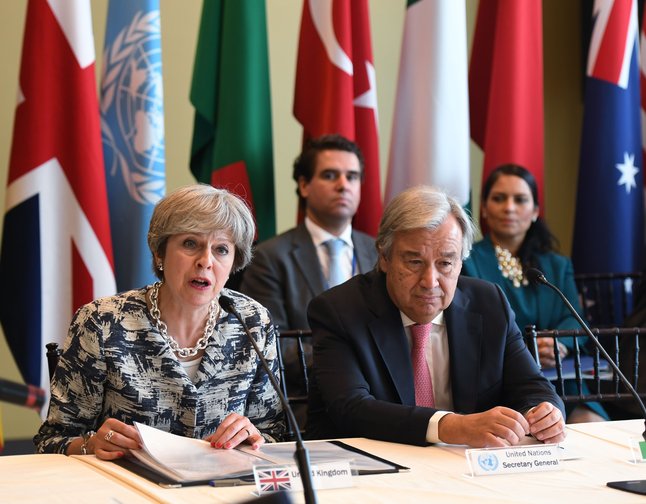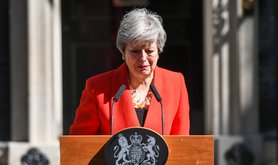It is sometimes argued that the problems associated with UK modern slavery policy can be traced back to insufficient resources. We do not believe this to be the case. Our research suggests that over £1bn has been spent on modern slavery interventions and research in the UK since 2014, making May’s model both ineffective and expensive.
This is not a model that countries interested in social justice should emulate. It should not be championed, and even if that weren’t the case there’s no reason to expect May would do a better job of selling it on a global stage the second time around.
As the head of her own commission, she’ll be the wrong saleswoman flogging the wrong product to the wrong people at the wrong time.
Having a commission might – just might – have made sense if there was no one else working on addressing labour exploitation internationally. This is not the case. This is a field which is crowded to the point of total saturation. There are numerous UN special rapporteurs, major global initiatives run by the ILO, UNODC, and the US State Department, and countless regional collaborations. There are at least a hundred projects already doing the same kinds of work.
There was no great swell of grassroots groups calling for the creation of a commission either. It can instead be traced to recommendations from a scoping study funded by the UK Foreign, Commonwealth and Development Office and undertaken by the Modern Slavery Evidence Centre, which May created and funded when she was still prime minister. This is a top-down creation designed to keep a former prime minister happy, and perhaps to prop up the crumbling myth that the Tory party cares about severe exploitation.
Yet it’s here. We’re stuck with it. So the only question that really matters is, can anybody convince it to say something – anything really – which is new?
Here are some suggestions.
Can we have an honest conversation about migration?
The UK, the EU, the US and the Australian governments all present themselves as champions in the fight against modern slavery and human trafficking, yet they are also world leaders in making life as difficult as possible for migrants.
These are not compatible. You can be anti-exploitation or anti-migration, but you cannot be both at the same time. Denying foreign nationals access to rights, safety and support while they’re inside a territory – or in transit to it – makes them more vulnerable, and thus more likely to be exploited.
The European Union is spending billions on systems to prevent people from coming to Europe, including funding militia-run, private prisons in Libya. Former president Donald Trump justified ‘building a wall’ as an anti-trafficking measure. The UK spends millions to apprehend potential migrants in their home countries through various anti-migration projects disguised as development assistance. They try to prevent workers from crossing the English Channel and tether the visas of many migrant workers to their employers, making it very difficult for them to escape if they find themselves being exploited and abused.
“First responders” to potential cases of ‘modern slavery’ and NRM contract holders routinely double as de facto immigration agents, gathering the personal data of vulnerable individuals and sharing it with law enforcement agencies. Modern slavery interventions and immigration enforcement run together, with punishment trumping protection. Earlier this year it was revealed that the Home Office was deliberately rejecting people whom it should have helped.
The effects of these grotesque anti-immigration measures have to be part of any conversation about ways of addressing modern slavery. There will be no “eradication” of exploitation without immigration reform.
Any proposal or report from the commission which does not seriously grapple with the layered effects of hostile immigration regimes is not worth reading.
Can we have an honest conversation about corporate power?
Labour exploitation is baked into every stage of global supply chains, and major corporations have carefully designed these chains to maximise their profits, minimise their liabilities, and obstruct workers’ rights.
The Modern Slavery Act sought to encourage voluntary change in these practices through transparency reporting. This has not worked. The modern slavery statements which the act requires from large companies are worse than useless, and multiple reports have shown that the voluntary audits many companies commission rarely rock the boat.






Comments
We encourage anyone to comment, please consult the oD commenting guidelines if you have any questions.